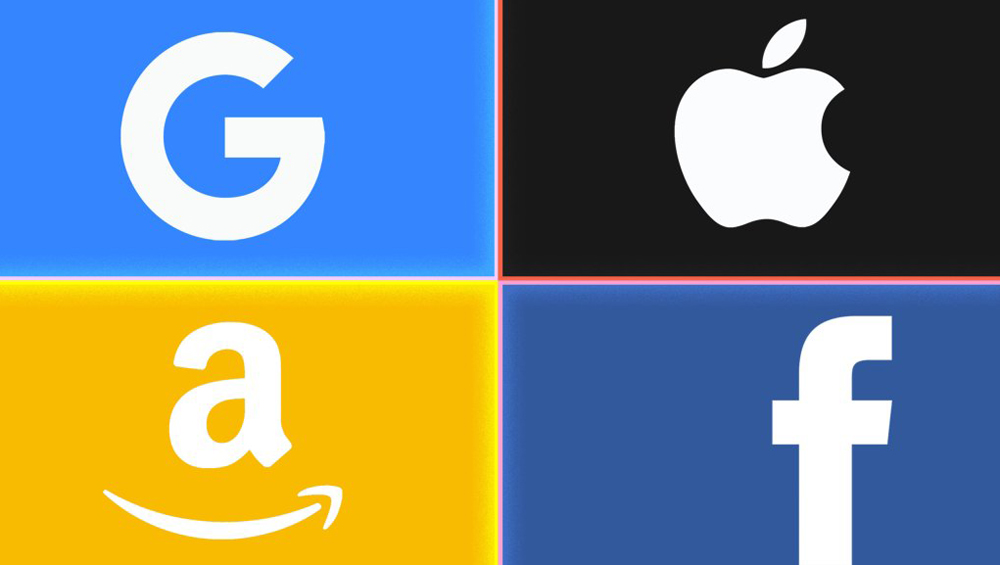
Why We Need The JCPA Now


Emily Barr
A number of years ago, I attended a meeting at Google’s Mountain View campus to discuss, among other things, the future of local news. Google presented the broadcasters in the room with a host of speakers and assured us that their goal was the same as ours, to support and encourage a thriving local news ecosystem.
One Google executive even told me that without local news, its engines would be woefully underutilized, so it was in its best interest to support our industry. Indeed, from this meeting the Google News Initiative was born, and since that time, Google has awarded significant financial grants to local TV and radio stations, podcasts, newspapers and digital startups all with the idea of encouraging the digital dissemination of news on its platform, among others.
Fast forward to today.
All of this sounds great until you consider the lopsided power dynamic at play involving the collective we know as Big Tech. In order for local broadcasters, newspapers and local digital startups to be seen, read, watched and absorbed, they first have to connect with people. And in order to do that, they must agree to the unilateral policies and rates set by the behemoth tech giants that are the gatekeepers and controllers of these platforms.
Amazon, Apple and Facebook are particularly aggressive in their efforts to control access, limit or even deny monetization and refuse the sharing of any data regarding local usage. It is a lose-lose proposition: To attract online user traffic, news content producers must be accessible through all of the major platforms, but the terms of access dictated by the platforms devalue the content, making it difficult to generate the revenue commensurate with the content’s true value.
As content generators and creators, we bear the brunt of the cost and risk associated with gathering and disseminating the news. Our reputation and track record built upon nearly a century of service to our local communities has cemented our credibility, and we continue to earn the respect of viewers and users from across the political spectrum looking for straightforward coverage and hard-hitting investigative reporting.
The main source of revenue for online news delivery is rooted in advertising, yet the tech giants (Facebook, Instagram, Apple, Amazon, TikTok, etc.) would like us to believe that they are being generous by allowing us limited access under terms completely dictated by them. In fact, they are squeezing us for content, controlling the algorithms, limiting or denying monetization and withholding data, which in turn control who can see the stories we are working so hard to tell, thus limiting our ability to financially support our news operations.
So, what to do? Right now, on Capitol Hill, there is real bipartisan interest in supporting the Journalism Competition and Preservation Act (JCPA). Given the chasm that exists between the Republicans and Democrats on just about everything else, that bipartisan support says a lot.
The JCPA, if passed, would allow local news providers — print, digital and broadcast — the opportunity to jointly and fairly negotiate the terms under which their content is accessed by Facebook, Apple, Amazon and others. It would go a long way toward leveling the playing field for broadcasters and local news providers and would allow us to negotiate for a fair return when our content runs on these platforms.
Today, too many local news providers are drowning in production costs and running feverishly fast just to try and reach consumers on a growing list of platforms that inherently limits their ability to fund the very content they create. What good is it to tell a story if few can find it, hear it and act on it?
Big Tech is not merely big; it is a Goliath. We deserve the collective power necessary to support, defend and uplift our local communities in the process. At the end of the day, a healthy local news ecosystem will probably make these platforms even stronger, so perhaps it would be in their best interest to work with and not against us. Think about that, Facebook, Amazon and Apple. Let’s get the JCPA passed now.
Emily Barr is the former president and CEO of Graham Media Group.
































Comments (3)
Hank Price says:
September 28, 2022 at 8:51 am
A great summary of one of the most important issues to broadcasters. Only legislation will level the playing field. If you are a GM, this is worth personally forwarding to your members.
RustbeltAlumnus2 says:
September 28, 2022 at 10:38 am
Inviting the federal government to solve a problem is a sure route to the law of unintended consequences. Look for dying newspapers to suck up all the attention and the broadcasters to sit at the small table.
Former Producer says:
September 28, 2022 at 12:50 pm
I’ve no doubt that “big tech” has the upper hand, and perhaps unfairly so. But let’s not forget that newspaper publishers and television broadcasters neglected to consider what the Internet could do for their business.
It’s not like digital news just appeared out of nowhere! Even in the 1990s, some local news outlets were experimenting with online coverage. However, publishers and broadcasters chose to stick with the old way of doing things, because to them, it was still profitable and they didn’t want to spend the time learning how to monetize online/digital content.
Craigslist killed off the newspaper model of classified advertising revenue. Online streaming is eating away at the broadcast model of television advertising revenue, and some of the biggest broadcasters now rely more on retransmission fees for revenue versus advertising.
The news business had a chance to adapt and stay ahead of the curve. It chose to not do so, and now, is suffering from the consequences of that decision.